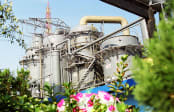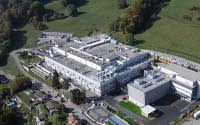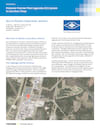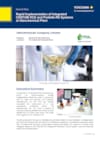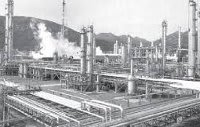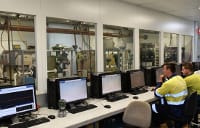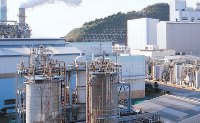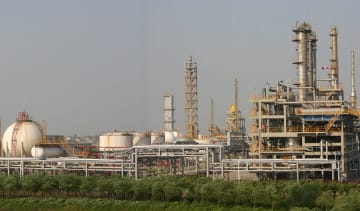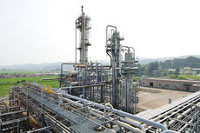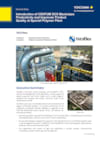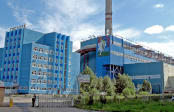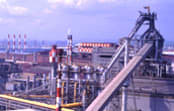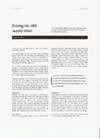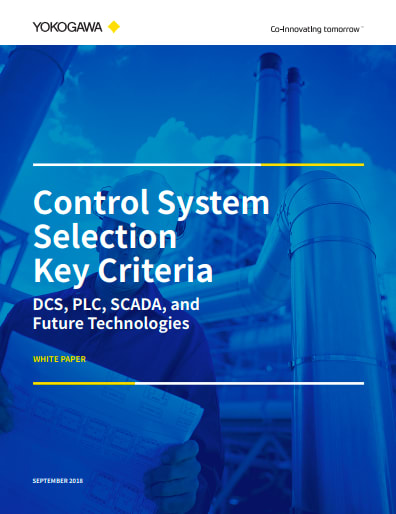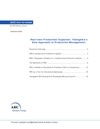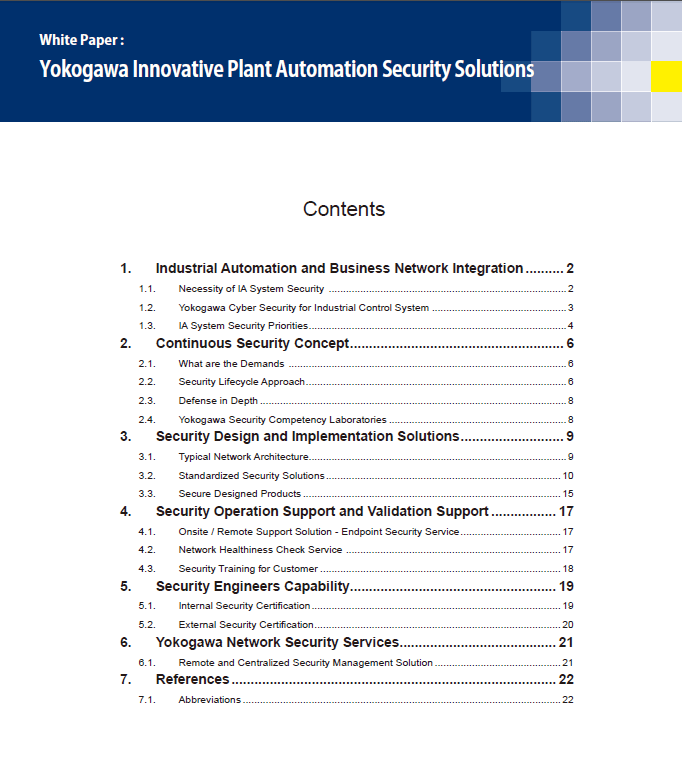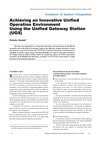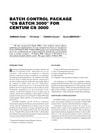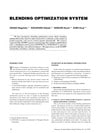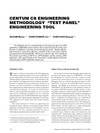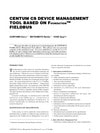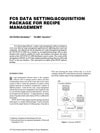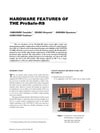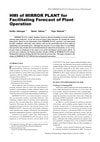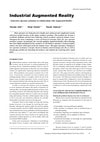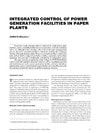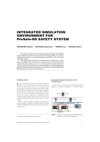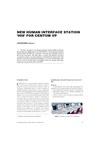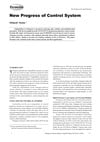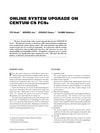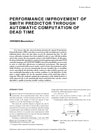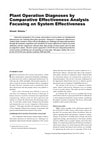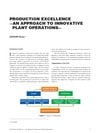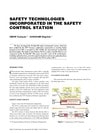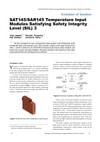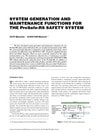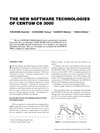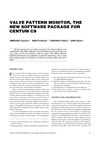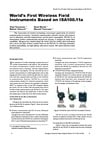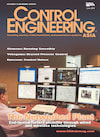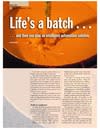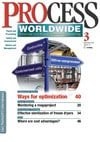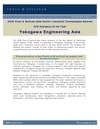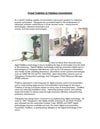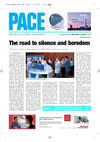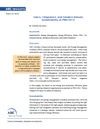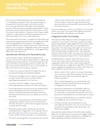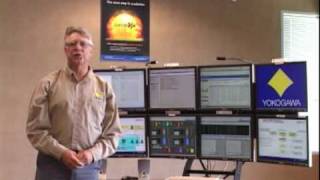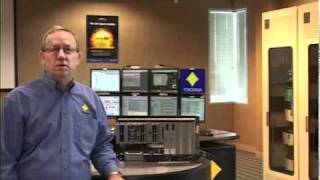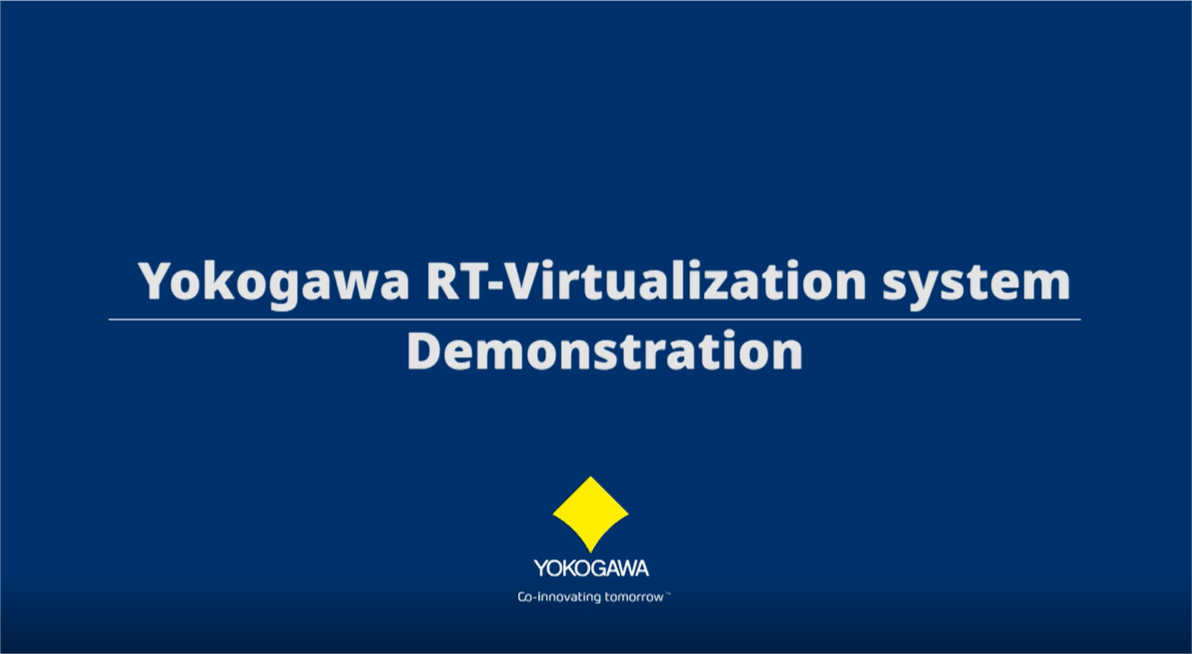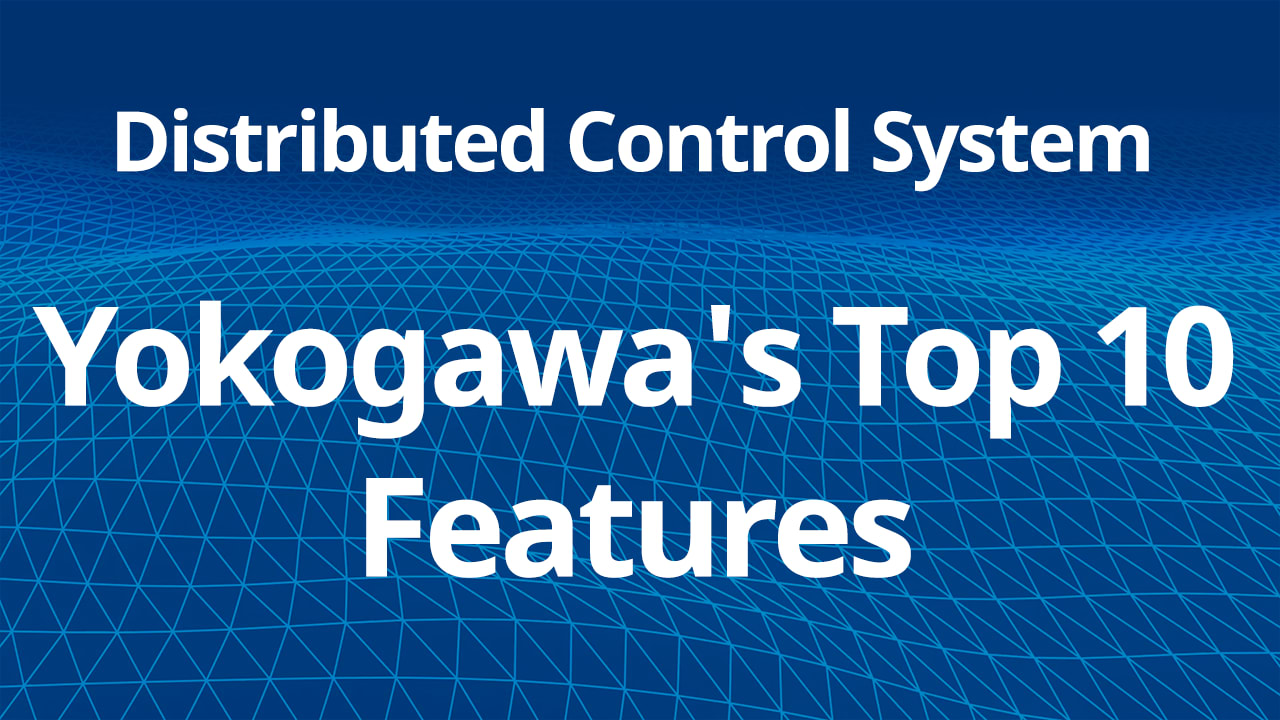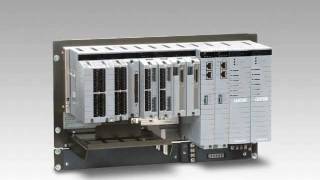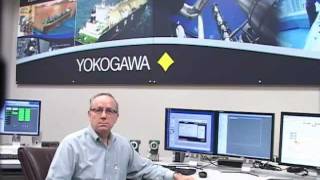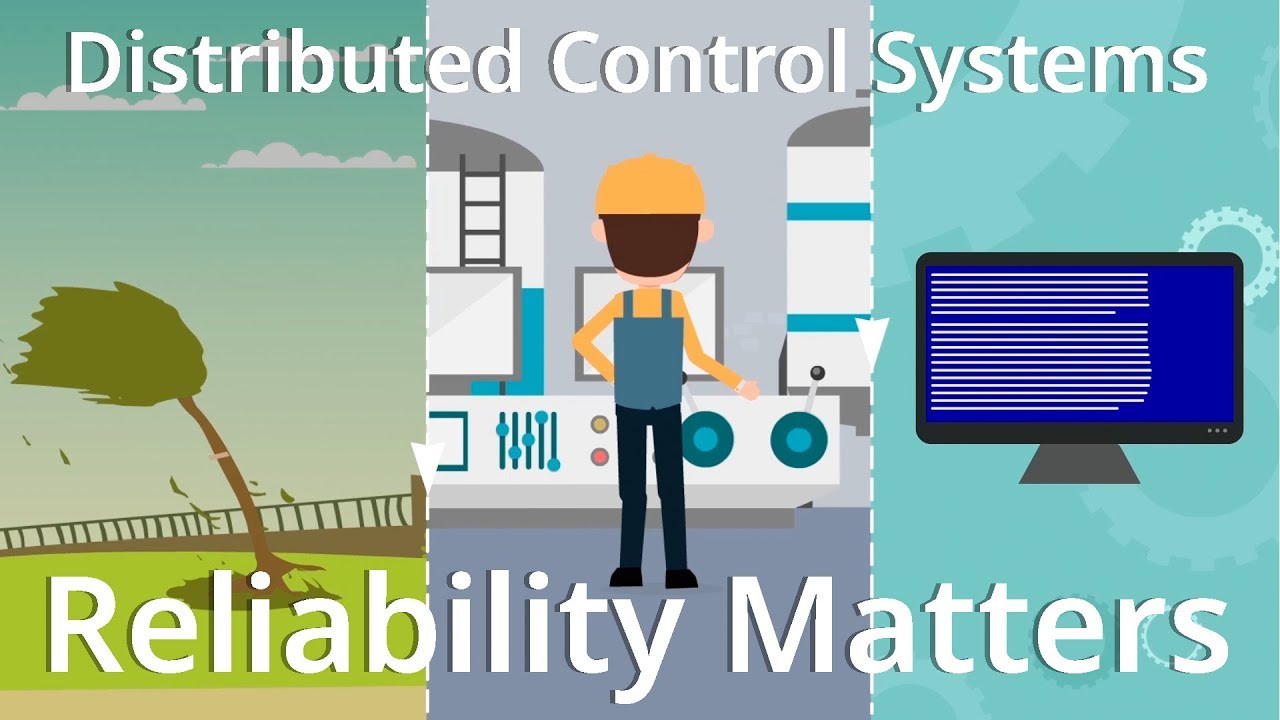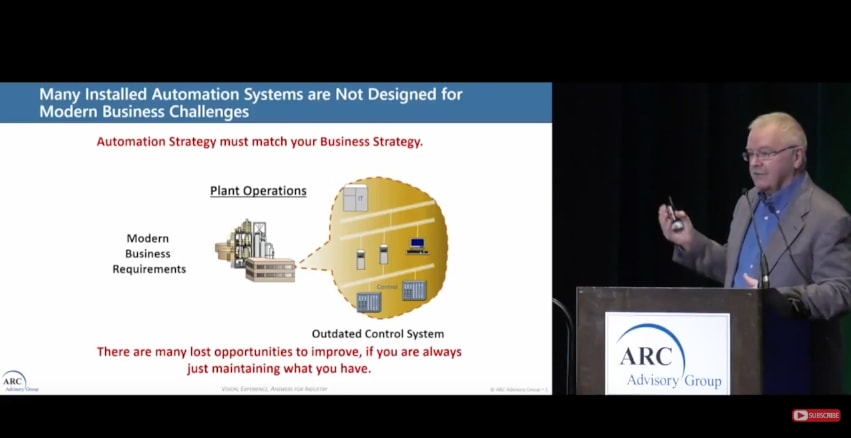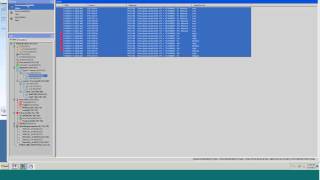
OpreX Control – Distributed Control System (DCS)
Operators from over 10,000 plants entrust Yokogawa’s DCS technology and solutions to meet their production targets year after year.
A distributed control system (DCS) is a platform for automated control and operation of a plant or industrial process. A DCS combines the following into a single automated system: human machine interface (HMI), logic solvers, historian, common database, alarm management, and a common engineering suite.
Yokogawa distributed control systems provide the industry’s highest field-proven system availability, enterprise-wide interoperability, extensive advanced solutions portfolio, and third-party-certified defense-in-depth cybersecurity to increase productivity and improve plant operations.
Delivering simplified upgrades and backward compatibility by design for over 40 years, Yokogawa exceeds the needs of operators throughout the product lifecycle.
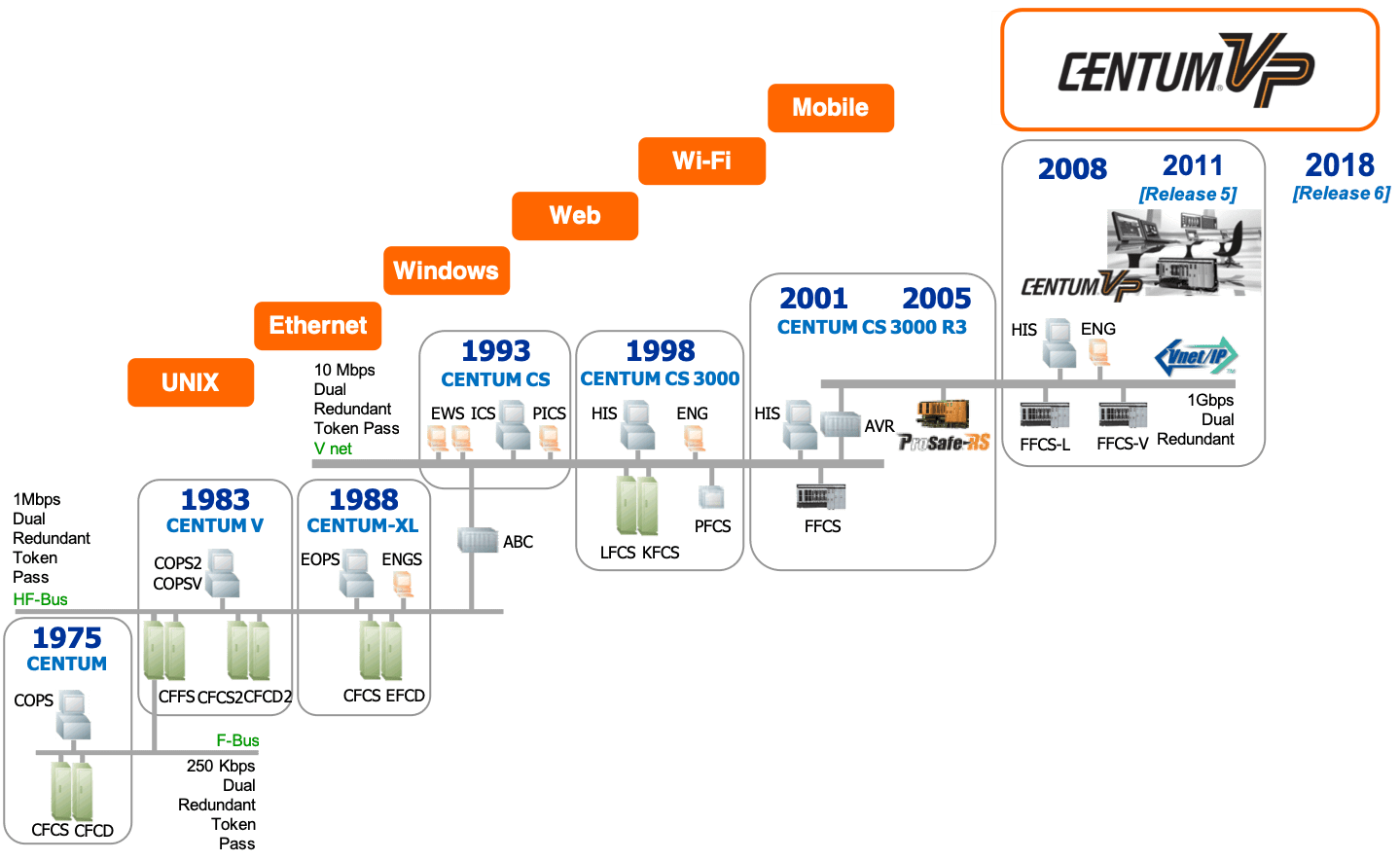
-
CENTUM VP DCS
- Yokogawa CENTUM VP DCS
- Enhances productivity
- Optimizes processes
- Wide range of industries
-
Advanced Solutions
Our extensive advanced solutions portfolio enables users to optimize their operations and profitability in a sustainable manner.
-
CENTUM CS
- CENTUM CS
- Yokogawa's legacy distributed control system since 1993
- Widely applied in plants all over the world
Details
Clients
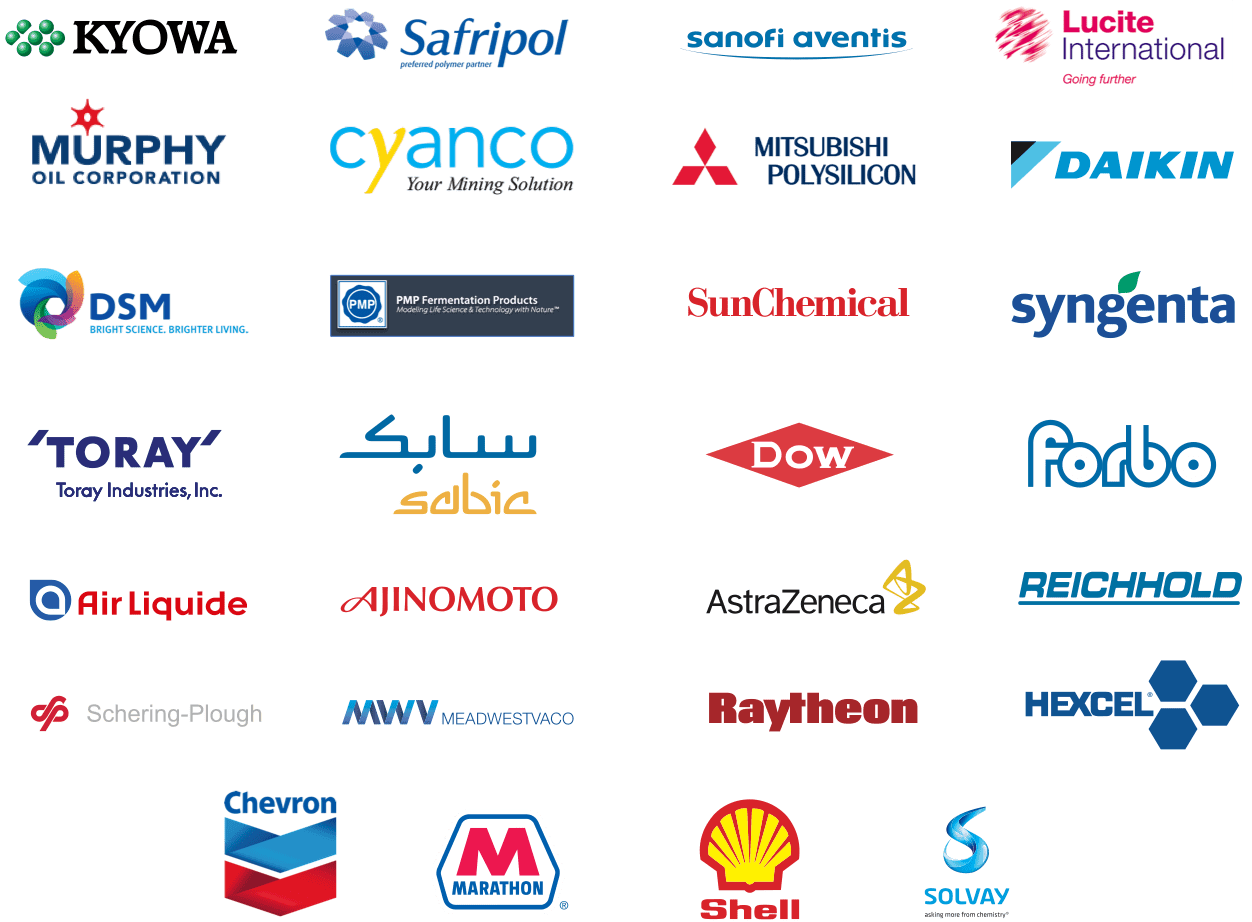
Partners

CENTUM Standards Compliance
CENTUM system hardware conforms to the standards listed below. Please use the CENTUM system in the industrial environment only.
- Safety Standards
- EMC Standards
- Standards for Hazardous Location Equipment
- FDA
- Marine Standards
1. Safety Standards
| Standard Name | ||
|---|---|---|
| CSA | CAN/CSA-C22.2 No.61010-1 | |
| CE Marking Low Voltage Directive |
EN 61010-1 | |
| EN 61010-2-030 | ||
2. EMC Standards
| Standard Name | ||
|---|---|---|
| CE Marking EMC Directive | EN 55011 ClassA Group1 | |
| EN 61000-6-2 | ||
| EN 61000-3-2 | ||
| EN 61000-3-3 | ||
| C-Tick Mark | EN 55011 ClassA Group1 | |
| KC Mark | Korea Electromagnetic Conformity Standard | |
3. Standards for Hazardous Location Equipment
| Standard name | ||
|---|---|---|
| CSA Non-Incendive (for 100-120V AC and 24V DC power supply) |
ClassI, Division2, Groups A,B,C and D Temperature code T4 | |
| CAN/CSA-C22.2 No. 0-M91 | ||
| CAN/CSA-C22.2 No. 0.4-04 | ||
| CAN/CSA-C22.2 No. 157-92 | ||
| C22.2 No. 213-M1987 | ||
| TN-078 | ||
| FM Non-Incendive (for 100-120V AC, 220-240V AC and 24V DC power supply) |
ClassI, Division2, Groups A,B,C and D Temperature code T4 | |
| Class3600: 1998 | ||
| Class3611: 2004 | ||
| Class3810: 2005 | ||
| Type n (for 24V DC power supply) |
EN 60079-15: 2010 | |
| EN 60079-0: 2009 | ||
| EN 60079-0: 2012 | ||
4. FDA
| Standard Name | ||
|---|---|---|
| FDA:21 CFR Part 11 |
5. Marine Standards
| Standard Name | ||
|---|---|---|
| ABS (American Bureau of Shipping) | ||
| BV (Bureau Veritas) | ||
| Lloyd's Register |
Note: The standard specifications are different for each hardware apparatus and for each software package. For more information, please see the document "General Specification (GS)."
CENTUM's Conformed Specifications
Fieldbus
| Specifications |
|---|
| FOUNDATION™ Fieldbus H1 (Low Speed Voltage Mode) |
| PROFIBUS-DP(PROFIBUS Specification EN 50170 Volume 2) |
| HART Protocol Revision5.7 |
Batch
| Specifications |
|---|
| ANSI/ISA S88.01 (Batch Control Part1:model and terminology) |
OPC
| Specification |
|---|
| OPC Data Access Custom Interface Specification Version 2.05A |
| OPC Data Access Automation Specification Version 2.0 |
| OPC Security Custom Interface Specification Version 1.0 |
| OPC Alarms and Events Custom Interface Specification Version 1.10 |
Vnet/IP Control Network
| Specifications |
|---|
| IEC 61784-2 Ed.2.0 |
Security
| Specifications |
|---|
| ISA99 |
Yokogawa activities in the ISA Standards Committees

Yokogawa is the member of the following ISA standards committees taking active roles for standardization.
- ISA-18.2 Alarm Management
- ISA-88 Batch
- ISA-95 Enterprise-Control System Integration
- ISA-99 Cyber-Security
- ISA-100 Wireless
- ISA-101 HMI
- ISA-103 Field Device Tools
- ISA-104 Electronic Device Description Language
- ISA-106 Procedural Automation
- ISA-108 Intelligent Device Management
ISA-18.2 Alarm Management
Activities with ISA-18.2 Management of alarm systems in the process industries
This standard provides requirements and recommendations for the activities of the alarm management lifecycle. Lifecycle stages include philosophy, identification, rationalization, detail design, implementation, operation, maintenance, monitoring & assessment, management of change, and audit.
There are currently six Technical Reports (TR) for ISA18.2 that have been published.
- TR1 – Alarm Philosophy
- TR2 – Alarm Identification and Rationalization
- TR3 – Basic Alarm Design
- TR4 – Enhanced and Advanced Alarm Methods
- TR5 – Alarm Monitoring, Assessment, and Audit
- TR6 – Alarm Design for Batch and Discrete Processes
Yokogawa supported the Working Groups (WG) that authored technical reports and is actively involved in WG7- Alarm Management for Plants Incorporating Packaged Systems.
Yokogawa provides consulting for alarm philosophy preparation, alarm identification and rationalization, defining alarm KPIs and reporting requirements all in the support of the ISA18.2 standard
Yokogawa products support the standard, such as Consolidated Alarm Management Software (CAMS) as part of our CENTUM VP platform, Alarm Reporting and Analysis (ARA) , Alarm Master Database (AMD), and Advanced Alarm Administrator (AAA Suite).
ISA-88 Batch
Promoting batch process control
Yokogawa continues to be dedicated to the standardization of batch process control, promoting a unified method and architecture for designing batch process control schemes. A standardized approach to batch process control benefits batch processing companies by lowering their costs to build and operate batch processes and reducing the lead-time required to introduce new products.
Yokogawa continues to be active in standards and educational organizations related to the development of batch control standards. We have developed products that comply with the ISA-88 (IEC 61512) standards and utilize the standard approach in our batch control implementation projects. Yokogawa supports the continuing standardization work in the batch process industries.
Activities with ISA88 Batch Control Standards Committee
The ISA88 Batch Control Standards Committee is the leading organization in the world regarding batch process control. The ISA88 committee is responsible for developing and maintaining the ISA88 Batch Control Standard which is recognized as the definitive document regarding batch process control. Internationally the ISA-88 standard is also known as IEC 61512 which is maintained by the IEC’s Sub-Committee 65A under Technical Committee 65. Yokogawa has been a strong supporter of the ISA88 committee since it was founded in 1988. Our members have contributed to the creation of all parts of the ISA-88 Batch Control System standards. The four parts of the standard are:
ISA-88 Batch Control – Part 1: Models and Terminology
ISA-88 Batch Control – Part 2: Data Structures and Guidelines for Languages
ISA-88 Batch Control – Part 3: General and Site Recipe Models and Representation
ISA-88 Batch Control – Part 4: Batch Production Record
Part 1 of the standard was updated in 2010 based upon feedback from the batch control community that had been using ISA-88 since the mid-1990’s. For information on how to obtain the updated ISA88 standard or learn more about the ISA88 committee go to ISA.
For more information go to isa.
BatchML (Batch Markup Language)
BatchML, the Batch Markup Language, is an XML implementation of ISA88 family of standards. BatchML consists of a set of XML schemas written using the World Wide Web Consortium's XML Schema language (XSD) that implement the models and terminology in the ISA-88 standards.
Yokogawa was instrumental in the creation of BatchML and currently works with MESA International to ensure BatchML stays current with ISA-88 updates and remains freely available for the industry to use. For more information on B2MML or to download a copy, go to: Batch Markup Language
ISA-95 Enterprise-Control System Integration
Activities with ISA-95 Enterprise-Control System Integration Standard
The ISA-95 standard provides a framework for exchanging manufacturing data between enterprise and manufacturing systems as well as between different Manufacturing Operations Management (MOM) systems. The standard has been widely adopted by manufacturing companies in the continuous, batch and discrete industries and by system suppliers at the MOM and enterprise levels.
Yokogawa is an active participant in the committee and supports the standard in our products and solutions.
The U.S. based ISA-95 standard has been internationally accepted as the IEC/ISO 62264 standard. The standard consists of five parts:
| U.S. Standard | International Standard | Title |
|---|---|---|
| ANSI/ISA-95.00.01-2010 | IEC/ISO 62264-1:2013 ed.2.0 |
Enterprise - Control System Integration - Part 1: Models and Terminology |
| ANSI/ISA-95.00.02-2010 | IEC/ISO 62264-2:2013 ed.2.0 |
Enterprise - Control System Integration - Part 2: Object Model Attributes |
| ANSI.ISA-95.00.03-2013 | IEC/ISO 62264-3:2007 ed.1.0 |
Enterprise - Control System Integration - Part 3: Activity Models of Manufacturing Operations Management |
| ISA draft 95.00.04 Draft 95.00.04-2012 |
In Progress | Enterprise - Control System Integration - Part 4: Object Models and Attributes of Manufacturing Operations Management |
| ANSI/ISA-95.00.05-2007 | IEC DIS 62264-5:2011 ed.1.0 |
Enterprise - Control System Integration - Part 5: Business to Manufacturing Transactions |
Parts 1 and 2 define a framework for exchanging data between Enterprise (Level 4) and Manufacturing Operations Management (Level 3) systems. Parts 1 and 2 were originally published in 2000 and 2001 respectively. In 2010 updated versions of both Parts were released. The updates incorporate feedback from users of the standard and knowledge gained writing Parts 3, 4 and 5.
Part 3 defines Manufacturing Operations Management activities and is widely used by manufacturing companies to describe their MOM requirements and functions.
Part 4 defines models for data exchange between functions within Level 3 (MOM).
Part 5 defines how data from Parts 1 and 2 can be exchanges as software transactions. This aids in automating the exchange of data.
IEC Joint Working Group 5 (JWG 5)
The international version of ISA-95 is IEC/ISO 62264. This international standard is being developed jointly by IEC and ISO in Joint Working Group 5 (JWG5). IEC participation in Joint Working Group 5 is under Subcommittee 65 (SC 65) of Technical Committee 65 (TC 65). The ISO participation is done by Joint Working Group 5 under Subcommittee 5 of Technical Committee 184.
The IEC/ISO work follows the U.S. ISA-95 publications. When the ISA-95 version is completed it is submitted to JWG 5 for consideration as international standard.
Participation on JWG 5 is coordinated through each member country’s national standard organization.
B2MML (Business To Manufacturing Markup Language
B2MML, the Business To Manufacturing Markup Language, is an XML implementation of ISA-95. B2MML consists of a set of XML schemas written using the World Wide Web Consortium's XML Schema language (XSD) that implement the data models in the ISA-95 standard.
Yokogawa was instrumental in the creation of B2MML and currently works with MESA International to ensure B2MML stays current with ISA-95 updates and remains freely available for the industry to use. For more information on B2MML or to download a copy go to B2MML (Business To Manufacturing Markup Language).
ISA-99 Cyber-Security
Activities with ISA-99 (IEC62443) Industrial Automation and Control Systems Security
ISA-99 is multi-part group of standards and associated technical reports which address the issue of cybersecurity in industrial automation and control systems. The standards are grouped into four broad areas:
- Concepts and terminology
- Asset Owner specific, including creation and maintenance of a security program
- Secure integration of control systems, including the zone and conduit model
- Product development and technical requirements of control systems.
The standards and associated technical reports are in the process of being converted to the IEC format and it is expected that most will be available by the end of 2013. The current status of the standards can be found on the ISA site.
Yokogawa actively supports both ISA-99 and the associated IEC standards and contribute to the creation and maintenance of these standards. The development of new products within Yokogawa follows these standards to ensure we produce secure, reliable systems.
ISA-101 Human Machine Interfaces (HMI)
Activities with ISA-101 Human Machine Interfaces (HMI)
The ISA101 standards committee was formed in 2006 to establish standards, recommended practices, and/or technical reports pertaining to designing, implementing, using, and/or managing human-machine interfaces in manufacturing applications. The committee is co-chaired by Dr. Maurice Wilkins of Yokogawa Corporation of America and Greg Lehmann of URS Corporation.
The areas covered within ISA101's work includes every facet of HMI design and operation, such as: menu hierarchies, screen navigation conventions, graphics and color conventions, dynamic elements, alarming conventions, security methods and electronic signature attributes, interfaces with background programming and historical databases, popup conventions, help screens and methods used to work with alarms, program object interfaces, and configuration interfaces to databases, servers, and networks.
The standard takes a lifecycle approach categorized into four stages: system standards, design, implementation, and operation.
Each clause is being developed under the leadership of one or two industry experts, with the help of a number of committee members. The clauses are as follows:
- Clause 0: General
- Clause 1: Scope
- Clause 2: Normative References
- Clause 3: Definition of Terms and Acronyms
- Clause 4: HMI System Management
- Clause 5: Human Factors/Ergonomics
- Clause 6: Display Styles and Hierarchy
- Clause 7: User Interaction
- Clause 8: Performance
- Clause 9: Documentation and Training
Draft 3 was sent out for a review by the full committee at the end of April 2012, and Draft 4 at the end of June 2013. After discussions at ISA Automation Week in November 2013, a small working group was set up to get the standard into a format and content to be put forward for ballot in 2014.
Technical reports such as HMI philosophy, HMI style guide, HMI design guide, HMI usability and performance, and HMI purchase specifications have been identified for future development as soon as the standard has been accepted. A new working group is soon to be set up for HMI for mobile platforms.
As of December 2013, the committee member numbers around 230.
ISA-103 Field Device Tools
Activities with ISA-103 (IEC62453) Field Device Tool Interface
ISA 103 defines the interfaces for both the vertical and the horizontal data flow, called Function Control and Data Access, in the framework of a Client-Server architecture so it will allow application software and configuration tools to interact with field devices in a unified way, while hiding the manufacturer-specific interaction with devices or sub-systems in a software module. ISA 103 supports any field bus, device or sub-system specific software tool that can be integrated as part of a universal life-cycle management tool of a plant automation system.
ISA 103 committee is currently working on the following items:
- Review and revise scope of ISA 103 to support FDI
- IEC 62453 update via 2012 maintenance cycle
- FDT 2.0 review
- Promotional activity for ISA 103 through road shows and seminars
Yokogawa is a very active supporter of ISA 103 activity. Yokogawa products like Plant Resource Manager (PRM) and FieldMate support ISA 103 based frame application and field instrument products based on HART®, FOUNDATION™ fieldbus, PROFIBUS® and ISA100.11a has DTM's (Device Type Manager) based on ISA 103.
ISA-104 Electronic Device Description Language
Activities with ISA-104 (IEC61804) EDDL Electronic Device Description Language
ISA 104 (IEC61804); Electronic Device Description Language (EDDL) is an integral technology for field digital protocols enabling configuration/setup, diagnostics, and monitoring of devices from different manufacturers. EDD is a text-based language for describing the digital communication characteristics of sophisticated field instrumentation and equipment parameters: device status, diagnostic data, and configuration details.
ISA-104 committee maintains the website for EDDL as Currently, the committee is working on the following items:
- New structure of IEC 61804 series and impact on field device integration
- Modify scope and purpose of ISA 104 to include FDI
- Update on EDDL website
- White paper on guideline/recommendation on management of EDD's for different device revisions.
Yokogawa is actively supporting ISA-104 and the associated IEC standard IEC 61804 and contribute to the creation and maintenance of these standards. Yokogawa field instrument products supporting field digital protocol like HART®, FOUNDATION™ fieldbus, PROFIBUS® and ISA100.11a supports EDD based on ISA-104 standard.
ISA-106 Procedural Automation
Activities with ISA-106 Procedure Automation for Continuous Process Operations
The ISA106 committee is working to produce a standard addressing the automation of procedures in the continuous process industries. This committee was formed in 2010 and published its first work product, a Technical Report, in 2013 titled “ISA-TR106.00.01-2013 Procedure Automation for Continuous Process Operations - Models and Terminology.” The Technical Report is available at isa.org.
The committee is currently working to produce a second technical report addressing the lifecycle of automated procedures and is working on the standard.
The committee meets 3-4 times per year, participating is open to all interested parties.
ISA-108
Activities with ISA-108 Intelligent Device Management
The ISA108 Committee was formed in August 2012 to define standards related to best practices and work processes for design, operation and use of diagnostic and other information provided by intelligent field devices in the process industries.
Yokogawa is actively contributing and supporting the ISA-108 committee. Several members of Yokogawa Electric Corporation, the world headquarters, in Japan and Yokogawa Corporation of America are participating on the committee.
Resources
- CENTUM VP Batch replaces the legacy system and improves production efficiency in the acrylic plant.
- CENTUM VP Batch capability can handle the recipe management to Batch report handling and unit management.
- Exapilot automates comlex and non-routine decoking process of NCUs.
- Operator workload has been drastically reduced.
- Meet the IEC 61508/JIS C 0508 functional safety standards
- Proactively introduce leading edge technologies
- Accommodate the plant licensors' safety, reliability, and maintainability requirements
- Improve the monitoring and operation functions of the emergency shutdown system
- Integrated CENTUM VP and ProSafe-RS Systems Ensure Nonstop Operation of ADU/DKU Processes.
- "This is a real VigilantPlant! We will continue to improve our production efficiency."
Yokogawa provided CENTUM DCS, APC, Exapilot, and Exaquantum for the migration project at Juhua Group's methane chloride plant. The entire management and optimization solution contributes to improving economic benefits, plant safety, quality, etc.
- Highlyadvanced biopharmaceutical plant uses CENTUM, VP Batch, Exaquantum and PRM.
- Total system integration for large-scale biotech production facility.
- Modern waste to energy facility in UK uses CENTUM CS 3000 and ProSafe-RS
- Lakeside exports at least 34MW per hour to the country's national grid
Yokogawa provided an integrated and comprehensive solution for ethylene cracking process optimization.
SMOC APC controller improved control level of ethylene cracking unit and reduced operators workload.
- Rapid Implementation of Integrated CENTUM DCS and ProSafe-RS.
- The highly reliable CENTUM DCS system has also helped TOL maintain high productivity at this plant.
- All correct operation procedures are carefully configured in the CENTUM CS 3000 and smoothly in operation
- CENTUM CS 3000 ensures stable supply of electricity and steam to Bangkok's Suvarnabhumi airport
- Operational Excellence by Asset Maximization, Utilizing Yokogawa's DCS, SIS, Analyzers, and Field Instruments.
- The CENTUM VP PCS and ProSafe-RS SIS were integrated using the same engineering environment.
- Nearly 60 gas chromatographs and a large number of other types of analyzers in several analyzer houses.
- Stable operation and proactive maintenance were realized at new coal-chemical plant in China.
- Yokogawa engineers ensured a successful and efficient commissioning and startup.
- Yokogawa provided control solutions for expansion project in sugar and bio-energy plant.
- Consolidated central control room was designed for safe, comfortable, and efficient work environment.
- Thai SPP uses CENTUM CS 3000 to improve efficiency of Biomass Power Plant
- The burning of the ground rice husks in the boiler's furnace chamber is a complex process that must be carefully controlled
- As the main automation contractor (MAC) for this plant construction project, Yokogawa Brazil engineered, installed, and commissioned an integrated control and instrumentation solution
- Yokogawa Brazil completed the commissioning of these systems ahead of schedule and the production of green polymer was started just one week later
- World's first offshore regasification terminal relies on Yokogawa ICSS (CENTUM CS 3000, ProSafe-RS).
- LNG carrier scheduling, unloading, tank storage, and vaporizing are all procedure based operations.
- World's largest LNG terminal relies on CENTUM to maximize safety and reliability.
- It is very important for KOGAS to be able to adjust flexibly to shifts in demand in the gas that it supplies to power plants, industrial companies, and residences.
- Yokogawa's CENTUM CS 3000 DCS Monitors and Controls Operations at Poultry Litter-to-energy Plant
- The boiler and turbine startup procedures reduces operator workload and helps to ensure a smooth and safe startup
Okinawa Prefecture is promoting clean energy with the aim of becoming a low-carbon society in the 21st century. Ocean thermal energy conversion (OTEC) technology is particularly well suited for this purpose, and is expected to both reduce the environmental impact that power generation has in the prefecture and lessen the prefecture's dependence on imported fossil fuels.
- OTS for familialization of liquefaction processes and operator training.
- Yokogawa's integrated solutions contribute to safe and steady production at gas liquefaction plant in Norway.
Samsung Petrochemical Co. Ltd. (SPCL), a major Korean petrochemical company, produces 700,000 tons per year of purified terephthalic acid (PTA) at its Daesan plant. PTA, a white powder substance that is produced by oxidizing and refining para-xylene, is a precursor to polyethylene terephthalate (PET), a polyester material that has excellent thermal resistance and wear resistance and is widely used as a substitute for natural cotton fibers and in film packaging, beverage bottles, tire cords, paints, adhesives, and other applications.
- Power supply made dramatically reliable thanks to CENTUM CS 3000 with seven-nines availability
- Visualization of almost all plant data on the same HMI by linking up subsystems via Modbus
- Improved plant performance
- Exapilot contributes to safety, reduces cost, and retains operational know-how.
The construction of Tuas Power Station started in the mid 1990s. The plant has steadily grown to be a significant player in the competitive Singaporean electricity market. Stage One of Tuas Power Station is equipped with the country's largest steam generators which are capable of producing 600 MW each.
- Exapilot smoothly starts up and shuts down the world's biggest experimental distillation unit.
- Data visualization is the key, giving operators a complete understanding of what is is going on in the process, in real time.
- Monitoring and control of the entire cogeneration plant including the two once-through steam generators
- Reliable and cost-effective power supply
- Operator-friendly HMI
Yokogawa contributes to the education of process industry talents by providing its own products.
TAFE Queensland students learn process industry by controlling the color of toast with CENTUM VP DCS.
- Steady power supply and safe operation thanks to reliable Yokogawa CENTUM CS 3000 and transmitters
- Environmentally optimized operation by fine-tuned boiler combustion control and strict monitoring and control of CO, NOx and SOx in flue gas and pH of water from cooling towers
- Full replica plant simulator for effective plant operation and engineering staff training
- Annual maintenance contract
- Based on a careful review of all operational procedures and operator roles and configured new SOPs in Exapilot.
- As a result, SFC has been able to reduce operator workload, improve product quality, and reduce production losses.
- Steady boiler control by CENTUM CS 3000 with dual redundant CPUs and seven 9s availability
- Total plant information integrated into supervisory information system via OPC interface
- Reduced water, coal and other resource consumption
Yokogawa China successfully replaced control system with CENTUM VP at 4th phase of caustic soda production plant in China.
Thanks to their project execution capability, the replacement was completed within a shorter period than the planned shutdown time.
- CENTUM CS3000 seamlessly integrates with multivendor control systems through OPC interface.
- Challenging predictive maintenance to monitor many transmitter data through PRM.
- At the company's Ulsan resin plant, six Exaquantum servers were connected to CENTUM CS 3000 and other vendor's systems.
- KKPC needed to expand its SBC capabilities and improve production efficiency at its plants.
- Up to 90% of all manual tasks can now be carried out automatically.
- Increasing productivity by means of partially automated start-up and load change procedures.
- Installation of Exaquantum PIMS package improves efficiency of process data management.
- Improve quality and yield through proactive maintenance of plant assets.
- Yokogawa provides CENTUM CS 3000 and ProSafe-RS for the largest LNG terminal in Europe.
- Yokogawa's OmegaLand plant operator training simulator (OTS) helps to reduce costs, optimize LNG terminal processes.
- ABS plant migrates from CENTUM XL to integrated CENTUM CS 3000 solution.
- CENTUM CS 3000 Integrated Production Control System together with CCTV equipment, a plant information management system (PIMS), the Exaplog Event Analysis Package, and the CS Batch 3000 package.
- The AR1 refinery recently replaced its legacy DCS with Yokogawa's CENTUM CS 3000.
- Achieving an Intelligent Oil Management System.
INPEX Corporation (INPEX) is Japan's biggest oil and gas development company and is involved in all aspects of this business, from research to exploration, production, and sales. INPEX is engaged in projects all over the world, in a total of 29 countries, including Japan, where it operates a gas production plant near Oyazawa, a town in Niigata prefecture.
The AFCO project is a showcase of the good coordination between Yokogawa Middle East, Yokogawa Thailand, Yokogawa Singapore, and Yokogawa Electric Corporation. Yokogawa Middle East and Yokogawa headquarters both were involved in the project execution.
- CACT Offshore platform reduces unplanned downtime by migrating from Legacy PLC System to reliable CENTUM CS 3000.
- It is possible for CACT engineers to modify the system configuration, download software updates, and hot-swap I/O cards while the process control system is online.
- CS 3000 efficiently controls and monitors coal gasification process.
- Once an operator selects "Start", the necessary instructions are sent to all plant equipment via the sequence control.
- The solution was a remote connection via Microsoft Terminal Services across the internet.
- It enables an Ausmelt technical expert in Melbourne to log on to the Yokogawa control system at Karabash in Russia.
- CENTUM CS 3000 production control system contributes to smooth HDPE production.
- The challenge for this replacement project was in completing the work and starting up the new CS 3000 system as soon as possible, keeping downtime to a minimum.
- Completion of First FPSO Project for Prosafe Production Services Pte Ltd
- Integrated Control & Safety System (ICSS) makes possible centralised plant supervision and management of all control and safety functions on this FPSO.
- Complete automation and control of glass plant
- Improved production cycle time and stabilized product quality with reduced energy consumption and costs
An international corporation based in Duisburg, Germany that was able to secure a US$ 780 million contract to construct a project marketly known as "Musi Pulp Mill". Construction started Sept. 1997 after financial agreements between the plant's owner, PT TEL and 32 foreign banks has been sealed-off.
- Complex starting up and shutting down operations of a biomass power plant were automated with CENTUM VP.
- Operator errors and interventions were eliminated in all critical processes.
- Smooth upgrade for fully redundant system and advanced information technology
- Stable and high-quality sulfonate production around the clock
The Itoigawa Power Plant was constructed adjacent to a cement plant in Itoigawa City, Niigata Prefecture, and is operated by an IPP that supplies electricity to Tohoku Electric Power, one of Japan's major power companies. The use of a 149 MW coal-fired CFB boiler in this power plant is a first for an IPP in Japan, and this effectively reduces NOx emissions.
- Fieldbus technology introduced to realize predictive and preventive maintenance.
- ISAE to improve the reliability of diagnosis and parameter setting, utilizing data collected by PRM.
Nishi Nippon Environment Energy Co., Inc. was founded in 1990 with the concept of a full, safe and comfortable urban life by harmonizing the global environment with energy-savings. Also, as a total energy industry corporation, which is promoting the efficient use of heat energy for the region, it is developing a broad business on the theme of civic improvement in the 21st century by preparing a stable city infrastructure.
- CS Batch is used to automate a wide range of Reichhold's batch processes and multi-product/multi-path processes.
- Using PRM, process engineers can immediately find out the status of every field device without having to do an onsite inspection.
- HMEL selected an integrated solution from Yokogawa
- Yokogawa India oversaw and implemented the engineering, installation, and commissioning of the refinery
Eraring Power Station, located just north of Sydney, is one of the largest power stations in Australia, comprising four 660MW coal-fired units. The power station has operated reliably since 1981. To ensure continued reliability for the next few decades, Eraring Energy, the owner of the power plant, decided to replace the original hard-wired control equipment with a modern integrated control and monitoring system (ICMS).
- Highly reliable CENTUM CS 3000 replaces legacy system and automates batch plant operation.
- Working together, Hanwha Chemical and Yokogawa Korea project personnel completed this work on time and on schedule.
- Innovative GEOLIDE waste water treatment complex in Marseille uses CENTUM and Exaquantum.
- The visualization of all data on items such as motor and pump operating time and chemical consumption amount allows operators to optimize key operation items.
- Introduction of CENTUM DCS maximizes productivity and improves product quality at a special polymer plant.
- A major improvement as a result of this project is that butadiene monomer recovery efficiency jumped hugely.
- Implementation of multivariable optimizing controllers and robust quality estimators within a record short period
- 3% rise expected in CCR feed amount
- Legacy System Replaced with Yokogawa CENTUM VP and ProSafe-RS at PTA plant in Indonesia.
- PID parameters imported to CENTUM VP without complex calculations.
- Implementation of AOA package for improved grade-change operation
- Dramatically reduced operators' workload and transient products, as well as sharable operation know-how
- To decrease downtime and maintenance costs, the decision was made to introduce Yokogawa's CENTUM DCS.
- With well-experienced MAC approach, Yokogawa replaced successfully legacy DCS.
- Kaneka Corporation has urgently needed to implement countermeasures that would reduce this facility's energy costs.
- Optimization of control strategy helps BTG plant save energy and operate more efficiently.
- PetroChina Dushanzi Petrochemicals Polyethylene Plant system migration.
- The revamp included the challenging creation of function design specifications (FDS) as well as FAT and SAT.
PT. Tanjung Enim Lestari Pulp and Paper (PT. TEL) operates a pulp mill in Muara Enim, which is 130 km west of Palembang, the capital of Indonesia's South Sumatra province. This is the only pulp mill in the world to produce high-quality, bleached-hardwood kraft pulp solely from plantation grown Acacia mangium trees.
- Reinstrumentation project at HDPE plant replaced legacy pneumatic instruments and PLCs with integrated CENTUM DCS PCS and ProSafe-RS SIS.
- HART field devices can be monitored from the central control room with the plant resource manager (PRM) package, enabling a more predictive and proactive maintenance approach that reduces total cost of ownership.
- PRM allows a preventive maintenance approach where maintenance can be scheduled and performed before a field device fails.
- Exaquantum gathers plant data from the CENTUM VP to generate a variety of reports on the polymerization process.
- Smooth and safe switchover to the new system
- Easy-to-use, easy-to-engineer system, plus various post-installation enhancements
- Tuned controllers for smooth plant operation and better traceability of process upsets
- Various other improvements thanks to advanced process control and MVC implementation
Saudi Aramco's operations span the globe and the energy industry. The world leader in crude oil production, Saudi Aramco also owns and operates an extensive network of refining and distribution facilities, and is responsible for gas processing and transportation installations that fuel Saudi Arabia's industrial sector. An array of international subsidiaries and joint ventures deliver crude oil and refined products to customers worldwide.
- Smooth and safe migration to CENTUM VP enhances production efficiency at major Australian gold mine.
- The HMI stations instaled at the central control room, training system, primary crusher, workshop, and office are all connected via thesame communication bus.
- Successful migration of in-line blending distributed control and oil movement systems.
- To minimize operator intervention and to keep the product properties on specification.
- TOKUYAMA improves productivity by migrating from MicroXL to CENTUM CS 3000.
- TOKUYAMA appreciates the high reliability of this Yokogawa system.
Universal Terminal (S) Pte Ltd, one of the largest independent petroleum products storage terminals in the Asia Pacific, has been built on Singapore's Jurong Island at a cost of S$750 million.
- Smooth project execution with no schedule and/minimal safety incidents.
- Easy to use, easy to reconfigure interface that has resulted in numerous post-installation enhancements.
- Minimizing day-to-day plant operation problems including reducing the alarming factor.
- Smooth replacement of old control system by early involvement and close teamwork
- Improved security, flexibility and quality of production
- The plant was designed to be unmanned, except for some first-line maintenance personnel who are stationed at the plant.
- Through the use of the latest control system and FOUNDATION™ fieldbus technology supplied by Yokogawa, process control and the diagnostic monitoring of field instrumentation is done from remote locations.
- Yokogawa installed a B/M9000CS quality control system with various cross direction profile control functions.
- The installation improves product quality and efficiency at pulp & paper mill.
- This has considerably improved the safety, quality, and efficiency of off-site operations.
- Yokogawa was the clear choice for installation of the OMS.
- All logistics of raw materials, intermediate products and final products are controlled and managed by MAS.
- MAS enables Operational Excellence with its seamless interface to enterprise resource planning system.
- The project goals emphasized schedule, quality, cost and safety.
- More than 40 sub-system interface cards are utilized for b14 partners company7s system integrated with CENTUM CS 3000.
- Yokogawa provides CENTUM CS 3000, Exaquantum and PRM solutions for China's largest refinery/petrochemical complex.
- Process data management by Exaquantum is a key issue in the petrochemical complex.
- State-of-the-art FOUNDATION fieldbus technology
- Plant Resource Manager (PRM) field device management system
- Remote data monitoring via WAN
- Yokogawa provides CENTUM VP with Batch Recipe Management Package for new fine chemical plant.
- Yokogawa's CENTUM VP complies with the requirement of Good Automation Manufacturing Practices(GAMP).
PetroChina Guangxi Petrochemical Company has completed construction of a combined refinery and petrochemical production complex in Qinzhou, a port city in China's Guangxi Autonomous Region. With a 10 million ton per year capacity, the refinery is one of China's largest, and is truly world class, using a highly advanced hydrogenation process, with the main process technologies coming from the USA and France.
- Using the CENTUM CS 3000 system, many kinds of plant key performance indexes are calculated and analyzed to produce further improvements.
- During plant start-up, PRM helps the customer's engineers perform all the loop checks.
- To replace the existing CENTUM XL control station with the latest Yokogawa CS 3000 hardware and upgrade the control network.
- The plan was to minimize plant downtime by doing a hot cutover from the old to the new control system.
- Yokogawa's CENTUM VP and PRM improve efficiency at new nylon plant in Thailand.
- At the plant startup stage, PRM was used together with FieldMate to thoroughly check all loops.
- Exapilot was introduced to maximize operational efficiency at an experimental refining facility.
- To prevent operator errors, it was essential to standardize operating procedures.
- Yokogawa's integrated solution contributed to reliable and efficient operation.
- All the instrument information is fully integrated with the instrument management system.
Shree Renuka Sugars Limited (SRSL) is a global agribusiness and bio-energy corporation. The company is one of the world’s largest sugar producers and refiners.
- Yokogawa Taiwan successfully replaced 3rd party DCS, which had worked over 20 years, with CENTUM VP.
- CENTUM VP's high reliability and easy engineering function realized a silent control room for the customer.
The Mathura refinery is a strategically important facility that supplies diesel, gasoline, aviation turbine fuel, kerosene, liquefied petroleum gas, furnace oil, and bitumen to customers throughout northwestern India.
- Yokogawa joined forces with Air Liquide to co-innovate the step-by-step revamping plan based on Air Liquide's specific requirements.
- Customer was satisfied that Yokogawa was able to deliver its solutions on time and on budget.
The Mars B Project added the following greenfield infrastructure to boost production at the Mars field and nearby exploration discoveries: the Olympus tension leg platform (TLP), which has 24 well slots and a self-contained drilling rig; the West Boreas/South Deimos subsea system; and an oil and gas export system, which includes the WD-143C shallow-water platform. The Olympus tension leg platform (TLP) started producing on February 4, 2014. The TLP is the second at the Mars field and the sixth of its type for Shell in the Gulf of Mexico.
In this eBook we explain how to improve fired heaters safety & efficiency by controlling combustion using TDLS technology. Download it now and learn:
- The 4 top industry challenges related to fired heaters
- How to efficiently and safely manage combustion
- How TDLS technology can improve operational excellence in fired heaters
Process automation end users are under more pressure than ever to do more with less. The current economic climate means that many automation capital projects are on hold. With capital budgets tighter than ever, users instead focus on operational budgets (where cost cutting is also a key concern), or on automation investments with a very rapid return on investment.
Alarm management is not just a project that has a start and end date; it's a continuous cycle. Once the alarm system has been reviewed and improvements have been identified, we must check that controls are in place to ensure the alarm system remains functional. The key is to ensure that the system is continuously monitored and any changes are fully documented. There are seven key steps for alarm management. Rationalization is one of those critical steps.
This technical white paper will discuss Yokogawa's CENTUM VP DCS (Distributed Control System) product, hereafter referred to as "CENTUM VP", and the extent of its compliance with Part 11 of Title 21 of the Code of Federal Regulations, (21 CFR Part 11), the Electronic Records / Electronic Signatures Rule.
As LNG moves from a niche to a major area of the oil and gas industry, experienced suppliers are required to deliver the technologies that support it.
FOUNDATION™ Fieldbus is an enabling technology with the potential to revolutionise operation and maintenance in the process industry and thereby to contribute significantly to reducing these costs, everyday of the lifetime of a plant. Specifically with regard to maintenance, FOUNDATION™ Fieldbus opens the way to proactive diagnostics and to virtually eliminating preventive maintenance and to avoiding shutdowns.
The worlds of process automation and production management have been converging for some time. What once used to be islands of automation and production management functionality connected through highly proprietary integration schemes that were costly to maintain have developed into integrated platforms that provide seamless data exchange between the world of automation and the plant floor, the functions of production and operations management, and integration with business level systems.
Network-IO can help reduce projects by decreasing the amount of time needed to implement the physical part of the process control system. A system with configurable I/O allows flexible "binding," in which the soft- ware configuration of the system can be loaded into the physical system at a late stage in the project.
Recently, several ARC Advisory Group analysts and management team members had a chance to sit down with the new Yokogawa President and COO, Mr. Takashi Nishijima, and several other top Yokogawa executives to discuss the company's burgeoning presence in the worldwide upstream and midstream oil & gas industry.
In today's dynamic industrial marketplace, the only constant is change. Raw material costs, energy costs, market demands, environmental and safety regulations, technology, and even the nature of the labor force itself are constantly changing, and not always in predictable directions.
Network and system security is now a necessity in process automation industry. YOKOGAWA provides a service lifecycle solution for cyber security to ensure that the security measures and deployments are continuously enhanced, monitored and inspected.
This white paper explains the details of the security design, implementation, operation and validation solutions from the technical perspective.
As plant operation becomes more intelligent and complex, the alarm system for safe and stable operation is becoming increasingly important. An alarm warns operators of an abnormal situation in a process and urges them to respond to it.
Recently, there is an increasing demand for operation and monitoring of all the various controllers distributed in the field on the same screens to improve plant operation efficiency. The purpose of the Unified Gateway Station (UGS) is to connect external controllers, such as the STARDOM's FCN/FCJ autonomous controllers and other vendors' controllers, to the CENTUM VP integrated production control system and to operate and monitor those external controllers on the Human Interface Station (HIS) screens, the operation and monitoring screens for the CENTUM VP.
In 2005, Yokogawa announced "VigilantPlant" as a concept to ward the realization of a type of plant operation that is considered ideal by our customers.
The specifications of the ISA100.11a wireless communication standard of the International Society of Automation (ISA) for industrial automation were published, and companies are developing products based on the standard. The ISA100.11a has many features such as high reliability including redundancy, network scalability, and support for various protocols for industrial automation.
Recently, manufacturing industries are trying to slash the total cost of ownership (TCO). Batch processes are not exceptions. Until recently, in comparison to continuous processes, batch processes have generally not yet undergone systematization and standardization.
The purpose of blending in a petroleum refinery is to mix semi-finished products that have been rectified during various refining processes so as to manufacture a product that meets specification.
The manuals of control systems such as a DCS provide a vast amount of information depending on their multi-functionality and functional integration. A conventional large-scale control system our company offers comes with more than 10,000 pages of paper documents.
To improve efficiency and quality in the DCS application coding and inspection phases for an entire CENTUM CS system, engineering tools have been developed, along with the training required to operate these tools. In consideration of the time needed for development, the need for adequate operability, the basis of standard CS software architecture, and the use of freeware (e.g., Perl2 and Tcl/Tk3), we began development of these engineering tools with the objectives to reduce development costs and increase efficiency.
A fieldbus is a bidirectional, multidrop, digital communication system developed to replace the conventional 4-20 mA communication lines that connect intelligent field devices with a control system. Fieldbus is continually reviewed in an effort to standardize the fieldbus specifications to comply with the specifications of the IEC and ISA.1
The first stage in creating next-generation production control system that achieves innovative plant operation is providing "Visualized operation". "Visualized operation" for the customer means that he can reliably access and visualize plant data regardless of plant location and time.
One of Yokogawa's corporate philosophies is to contribute to society through broad-ranging activities in the areas of measurement, control, and information. To achieve this philosophy in the control industry, Yokogawa launched CENTUM, the world's first distributed control system (DCS), in 1975.
As the world's societies become more connected, market competition is becoming more ruthless and transactions are performed at ever increasing speeds. Deregulation has ignited global competition throughout the world. The proliferation of Information and Internet technologies have accelerated the growth of global competition, with life cycles for high tech products having lives measured in "dog years" (in each normal year they advance seven years).
The consolidation of control rooms was conducted in several refineries in the 1990s and early 2000s as a means of reducing the number of operators and improving the efficiency for enhancing competitiveness. The characteristics of consolidated control rooms vary, reflecting the history of a refinery.
The manufacturing industry has grown based on solid production technologies for creating quality products. However, the economic environment is changing dramatically, forcing manufacturing firms to face tough global competition; firms must ship the right products at the right time as the market requests.
The phenomenon of the current era, coined the information age, involves a global trend toward digital technology and open architecture. Field devices are no exception to this trend.
For large scale geographically dispersed projects, there may be a hierarchy of individual Process Automation systems, which in turn are each responsible for a specific region, and are managed by a higher level system. Engineering of systems on this scale is a huge challenge, because each individual system has its own database and its own configuration.
As a company that has strong relationship with nature and provides products using nature's blessings, Mercian Corporation is committed to the environment. Its environmental philosophy is "Mercian thanks nature's blessings and capability that sustain life, and seeks to balance environmental preservation with creating an affluent society."
Recipe management software refers to the computer software used to manage product names and their corresponding recipes and set the recipe data in the control system in order to control the operations of a plant in which multiple materials are blended to manufacture a number of different products.
As for a controller used in a distributed control system (DCS) shown in Figure 1, covering as many applications as possible with a single controller will bring cost reduction effects such as easy engineering and a small controller installation area. Therefore, the controller is required to process large amounts of data more quickly.
There are already safety systems on the market that have achieved safety integrity level SIL3 of the functional safety standard, IEC61508. However, most of them have achieved SIL3 by conversion of modules into dual-redundant or triplex form.
For safe plant operations, it is critical to correctly understand the conditions encountered by operators inside the plants. In relation to this topic, human cognition has been studied in various fields such as human factors and ergonomics.
In industrialized countries, social trends such as the aging of workers and the decrease in working population are becoming obvious. Substantial problems such as a lack of skilled engineers and increases in the labor cost of knowledge workers are significantly impacting industrial automation users. These problems cause greater economic loss to the users.
The power generation facility in a pulp and paper plant is comprised of units, each of which is composed of a boiler, a turbine, a generator, and auxiliary equipment, and these pieces of equipment were traditionally controlled on a unit/equipment basis. This paper presents an application of CENTUM, Yokogawa's distributed control system (DCS) that integrates the independent control systems of such power generation facilities to achieve labor saving through operations via CRT display and keyboard.
In recent years it has become increasingly common for plants to be provided not only with the control layer of a production control system (DCS, etc.), but also with the protection layer of a safety instrumented system (SIS) to reduce the risk of industrial accidents. The safety instrumented system is indispensable for avoiding risks to a plant failure.
The requirements for water supply and sewage services are becoming increasingly strict, such as consolidation of facilities, operational efficiency, lower cost, and information transparency due to stagnant demand. There is also demand for greater use of information technologies (IT), encouraged by the government's e-Japan strategy.
Instrumentation devices and equipment serve for plants as the eyes, ears, nose, tongue, and skin, which are responsible for the five senses, and act as the central nervous system and brain do for human beings. The reliability and availability of such devices and equipment are the most important requirements of customers.
CENTUM VP is a next-generation Integrated Production Control System which provides solutions to improve operation efficiency (Operational Excellence) based on Yokogawa's VigilantPlant concept. In the development of Integrated Production Control Systems, we have expanded the functions of the Human Machine Interface (HMI) maintaining the main essence of CENTUM series, regardless of the changes of platforms.
Yokogawa proposed the VigilantPlant concept as an ideal plant that achieves fully optimized operation where all the necessary information is given to all the operators involved in the plant operation. In VigilantPlant, operators are able to quickly respond to changes in the external environment while the production activities run without any interruption.
FCSs, the control stations in a CENTUM CS system, have already demonstrated that they are highly reliable, effective and maintainable. These advantages are the result of such features as the dual-redundant hardware configuration, the online modification of application data, and so on.
The environment surrounding process control systems has changed dramatically as the performance of personal computers improves and the Windows operating system advances, there has been a move towards the trend of open architecture. As we are already aware, in addition to the traditional high reliability level and the unique operability there has been an increase in demand for the interoperability of human- machine interfaces (HMI), which are responsible for the operation and monitoring of our distributed control system (DCS).
In process control it is not uncommon for systems to be affected by dead times, due to material transfer times. This is evident typically in pipelines. A fluid of density ρ and flow rate w in a section of pipe A the length of d takes the amount of time τ = ρAd/w to cover the whole distance (see Figure 1).
Industrial automation (IA) systems and products, which utilize measurement, control and information technologies, are used across the world as fundamental infrastructure for achieving safe, stable and highly efficient plant operation. In order to keep the systems and products effective throughout the plant lifecycle, customers need to periodically check their effectiveness and take prompt action if any problem is identified.
In Japanese industries which grew rapidly until the early 1990's, solid production techniques for creating high-quality products supported the development of manufacturing industries. However, the economic environment has been changing rapidly and tough global competition has become unavoidable. Particularly, the manufacturing industry must adapt not only to changes in economic environments but also to changes in social conditions such as emphasis on health, safety, and environment (so called HSE).
Recently, standardization of procedural automation of manual operations has been promoted mainly by the International Society of Automation (ISA), and the functional requirements necessary for automation are being studied by the ISA106 committee in the US.
Upgrading and renewal of plant facilities, including production control systems and safety instrumented systems, are essential for maintaining safe and efficient plant operation. Even though these activities are categorized as R&R, they require investment and customers are often required to evaluate the profitability for obtaining approval.
Conventional safety instrumented system (SIS) is typically installed separated from a distributed control system (DCS) to eliminate interference from the DCS and assure safety. However, users increasingly wish to integrate SIS with DCS while maintaining the safety of safety controllers.
Yokogawa's ProSafe-RS safety instrumented system is used for many applications as a system conforming to the safety integrity level (SIL) 3 defined in the IEC61508 international functional safety standard. To deal with temperature inputs, systems were conventionally configured using signal conditioners.
Report functions in process control are often positioned as part of the logger functions. However, plant operation data in a batch process should be not only logged regularly but also acquired and managed for each batch execution. The report function for logging plant operations in a batch process mainly comprises a function to print out plant operation data collected for each batch execution, and there are various approaches available to implement this function.
Drastic changes in the economy of manufacturing industries, has led to increasing demand for plant operations to reduce personnel, improve efficiency, and increase the operation rate of facilities. On the other hand, for plants to operate safely, improvements in reliability and operational safety cannot be neglected.
The CENTUM CS 3000, a reliable distributed production control system, has been introduced worldwide with the objective of operating plants efficiently 24 hours a day, every day. The CS 3000 handles abnormal conditions in a plant appropriately and minimizes the chance of them developing into faults.
In recent years, expectations for control systems using wireless communications have been increasing in the process control market. This is because these systems do not require power and communication wiring for field instruments, enabling reduced initial and maintenance costs, and easy installation.
In this day and age, just simply buying a personal computer, taking it home and turning it on will enable you to be taken to the world of Internet. In such an era, communication connection capability and prospects is increasing in importance. DCSs are no exception for concern.
To date, Yokogawa has focused on DCS (Distributed Control System) which control the entire power generation plant, including boilers, in the electric power industry. In contrast, turbomachinery control has been handled by turbine manufacturers, but as the electric power market has been active internationally, especially in China and India, in recent years, Yokogawa has been developing turbomachinery control systems to to further develop the electric power industry.
For a transfer system in a plant, such as a transfer between tanks in a brewery, the transfer of pellets in a pneumatic transport system, or the transfer of oil at an offsite location, it is necessary to monitor the open/close status of valves or the on/off status of motors or blowers in reference to the transfer pattern (a combination of the transfer source(s) and destination(s), route, etc.).
Due to emerging competitors from the rapidly growing countries such as India and China and the global economic downturn triggered by the Lehman shock, many companies in the process industries are struggling to survive the severe global competition.
The operation and monitoring functions of a plant control system are important means of understanding the condition of the plant and how it operates. Traditionally, user needs for the system focused on such features as increased operability and durability. As a result, these functions were developed for a dedicated machine in the form of dedicated human-machine interface software.
The innovation of wireless technology increases the use of wireless communication in the industry. The introduction of wireless communication to plants, however, requires strict features such as robustness, real-time responsiveness, and low power consumption. This has restricted the use of wireless communication to limited applications such as data logging and device status monitoring that does not require strict real-time responsiveness and data arrival reliability in communication.
Migration of a refinery's DCS provided an opportunity to reconfigure and consolidate the control rooms and operational management system.
Control Engineering Asia, June 2014
Your next automation system will have to do far more than real-time control,as the demands for new capabilities are rapidly growing. Bruce Jensen writes.
By Bruce Jensen, General Manager, Technical Solutions Support Center, VigilantPlant Solutions and Services, Yokogawa Corporation of America, and Joshua Kyaw Zwa, Executive Engineer, System Marketing Department, Marketing Operation, Yokogawa Engineering Asia Pte. Ltd.
...and then you plan an intelligent automation solution.
In an ideal automation project, time is unlimited, and project budgets are generous. The plant implementing such a project has the luxury of automating all of its field actuators, great and small.
September 2008
Yokogawa is helping a large chemicals site in China manage product transfer by road, ship and pipeline.
September 2007
Yokogawa's web-based DCS Anywhere has simplified commissioning at the Nanhai petrochemicals complex. With a total investment of 4.2 billion US dollars, the Nanhai petrochemicals complex at Daya Bay in Huizhou, China, has attracted a lot of attention because of its sheer scale.
Industrial Automation Asia, August 2012
For the past 35 years, developments of a distributed control system (DCS) have been evolving to raise productivity and enhance plant operation. As field instruments advance, there is a need to exchange large amount of process data and parameters among various diagnostic devices for stability of plant operation.
As industrial facilities take on more complex tasks and lose in-house expertise, they ought to be able to rely on suppliers to show the way and help them achieve their goals.
October 2008
The 2008 Frost & Sullivan Asia Pacific Company of the Year Award for Distributed Control System (DCS) market is presented to Yokogawa. Yokogawa is the market leader with a dominant market share in the Asia Pacific market.
Control Engineering Asia, May 2012
An exception level of engineering expertise tailored for the local market is one of the primary reasons why Yokogawa has managed to capture and keep the process automation top spot in the Land of Smiles, says Somkid Teraboonchaikul, managing director, Yokogawa Thailand.
As a world's leading supplier of instruments and control systems for industrial process automation, Yokogawa has committed itself to the development of advanced solutions and products in three focused areas – measurement technologies, industrial automation and control, and information technologies.
Greg Hallauer discusses the importance of selecting a reliable automation partner.
March 2008
Yokogawa has taken a vital step in their plan to make the world's plants 'silent and boring', and therefore, well-managed, with the release of their new integrated production control system CENTUM VP last month.
Process automation in oil refineries is undergoing major changes, driven by customers frustrated by what they consider to be slow and incremental advances from the main automation original equipment manufacturers (OEMs) in the industry. ExxonMobil has become a de facto industry representative and is driving vendors like Yokogawa and others to reevaluate how large-scale automation projects are implemented.
At ARC Process Management Academy (PMA) in Antwerp Yokogawa's contribution to plants in Europe was introduced.
Honeywell and Yokogawa have both been producing Distributed Control System (DCS) platforms for decades, and both are very active in this area. In 1975, Honeywell introduced its TDC2000 platform and Yokogawa brought out CENTUM. These two competing systems emerged from a similar place, oil refining and petrochemical industries, so they started out with similar basic concepts and use cases in mind.
Oil producers looking past today's difficult world markets understand development of new sources will bring a growing list of challenges. An ever-increasing amount of oil and natural gas is being produced by techniques once considered unconventional: tar and extraction, fracking, and deep water offshore drilling. As the costs of these extraction methods have gone down, the range of economically recoverable deposits has increased. When crude oil markets return to more normal levels, these difficult fields, including deep water offshore oil and gas, will become increasingly important.
By Eugene Spiropoulos, Yokogawa Corporation of America
Many lubricant blending businesses find themselves in a challenging situation: there are opportunities to increase their overall business volume and profits by improving production flexibility, expanding their product slate and optimizing high-margin blends. At the same time, they find themselves constrained by current manufacturing limitations. However, launching a capital project for a significant manufacturing expansion may not be possible, and it may not be necessary.
Downloads
Brochures
- CENTUM VP DCS Top 10 Features Infographic (231 KB)
- Chemical Industry Solutions (986 KB)
- Mining Solutions (3.2 MB)
Videos
CENTUM batch is designed for multi-product, multi-path processes and is based upon the ISA88 standard.
The CENTUM VP is the flagship integrated production control system for Yokogawa VigilantPlant Solutions.
Yokogawa virtualization system is optimized for process control to satisfy the quality and performance requirements of process control, and achieve operations similar to existing systems using physical computers.
The CENTUM VP R5.01 is latest release of our flagship integrated production control system for Yokogawa VigilantPlant Solutions.
UGS is a Vnet/IP station that unifies subsystem controllers such as STARDOM controllers and third party PLCs to a CENTUM VP system.
0:00 "Yokogawa Corporation of America Strategy in the US, Canada & Mexico" by Chet Mroz, President & CEO, Yokogawa Corporation of America
4:13 "Creating Value and Innovation in Industrial Automation (IA) through Strategic Alliances" by Chiaki Itoh, VP, IA Marketing HQ, Yokogawa Electric Corporation
8:47 "Global Strategic Alliance with DELL" by Nobuaki Konishi, VP, Systems Business Div., IA Platform Business HQ, Yokogawa Electric Corporation
20:24 "The Dell OEM Advantage" by Joyce Mullen, VP and General Manager, OEM Solutions, Dell Inc.
Chet Mroz, President & CEO Yokogawa North America, discusses the benefits of IoT at the 2015 ARC Industry Forum in Orlando.
Whether they are brownfield migration or greenfield, major automation and control system projects present a challenge to owner operators. Learn how others prepare and execute successful automation and control system projects.
This Webinar will present a detailed look at a software demonstration of how to configure Yokogawa's Consolidated Alarm Management Software (CAMS) for HIS (Human Interface Station). How users can implement CAMS to meet some of the recommendations from EEMUA 191, ISA 18.2 and other published guidelines for alarm management will also be presented.
Discovered more than a decade ago, the Jack and St. Malo fields are expected to deliver more than 500 million barrels of oil. The Jack St. Malo floating production unit is the fourth deepwater facility Chevron operates and is the largest Chevron has in the Gulf of Mexico. Hear what it takes to deploy the technology and deliver first oil from this very challenging megaproject
The legacy model of automation project execution is linear and rigid, defined by milestones that depend on the completion of previous phases. Little parallel work is typically possible, and late changes in data or re-work cannot be easily accommodated.
The Agile Project Execution model allows field signals to be configured by software at any phase of the project. These universal IO channels can even be software-configured as soon as they are wired without requiring a completed system, adding significant flexibility to the project schedule and, most importantly, reducing the risk in your plan and investment.
This webinar will explain how you can take advantage of Agile Project Execution through Yokogawa's Network IO technology and FieldMate Validator.
News
-
Press Release Jul 16, 2019 Yokogawa Releases CENTUM VP R6.07
- Enhancements to this core product in the OpreX Control and Safety System family that improve connectivity and productivity -
-
Press Release Jul 8, 2018 Yokogawa Releases CENTUM VP R6.06
- Enhancements to this core product in the OpreX Control and Safety System family of solutions that allow quick system upgrades and improve productivity -
-
Press Release Dec 18, 2017 Yokogawa Develops N-IO Standard Field Enclosure and Control System Virtualization Platform
- For improved agility in implementing control system projects -
-
Press Release May 19, 2016 Yokogawa Releases CENTUM VP R6.03 Integrated Production Control System
- Ensuring quick and smooth system upgrades -
-
Press Release Dec 1, 2015 Yokogawa Releases CENTUM VP R6.02 Integrated Production Control System
- Enhanced operation and monitoring functions for greater efficiency and safety -
Looking for more information on our people, technology and solutions?
Contact Us



